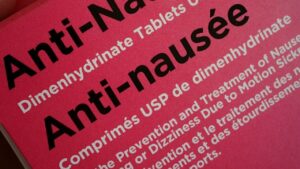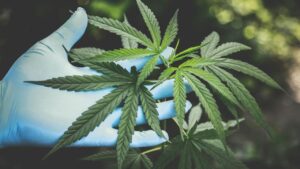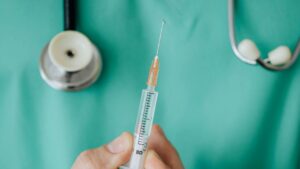With the opioid epidemic continuing to sweep the nation and claiming thousands of lives, knowing the signs of opioid abuse could potentially help save a life. While it can be challenging to accurately determine if a loved one is abusing opioids, there are certain signs that are often apparent during active opioid use. The sooner a person seeks treatment for opioid abuse or addiction, the better the chance he or she has at a full and long-term recovery. If you believe your loved one is abusing or addicted to opioids, Swift River has several opioid rehab programs designed to help individuals overcome substance use disorders.
What Are Opioids?
Opioids are drugs that can be synthetic, partially synthetic, or naturally derived from the opium poppy plant. Opioids are available both legally and illegally. Common legal opioids include prescription medications like hydrocodone, morphine, and oxycodone. Illegal opioids include heroin and illicitly obtained versions of legal prescription medications. Opioids work by binding to the opioid receptors in the brain to change how the brain and body perceive pain. As a result, these drugs are highly effective at relieving pain, especially chronic and severe pain that cannot be controlled by other forms of medication. However, these medications also elicit feelings of pleasure and euphoria, making them one of the most commonly used drugs in the nation. [inline_cta_one] These drugs can be ingested in a number of ways. People who abuse opioids may inject, snort, or smoke the drug in order to experience a faster and more intense high. Unfortunately, opioid abuse can be dangerous and even deadly, especially when consumed in high quantities or taken in any way other than what is prescribed. People who use opioids are at an increased risk of not only addiction and dependence but also overdose.
Signs Of Opioid Use
Drug abuse can sometimes be hard to identify, especially in the early stages of use. However, knowing the signs of opioid abuse can help you determine if a loved one is abusing this type of drug and allow you to help them seek treatment. The earlier a person gets help for opioid use, the better the chance a person has at preventing full-blown addiction. Six signs that your loved one may be abusing opioids include:
1. Avoiding Family And Friends Or Spending More Time Alone
Many people who abuse opioids and other drugs do not want their family and friends to know about the use. As a result, individuals may begin to withdraw from loved ones and spend more time alone. They may even isolate and refuse to see family or friends or even communicate with them in an attempt to keep their drug use a secret.
2. Doctor Shopping
“Doctor shopping” is one way that an individual may try to obtain more opioids than what he or she has been prescribed. Doctor shopping is when a person visits multiple doctors in an attempt to get more prescriptions for opioids.
3. Experiencing Problems At Work Or School
People who abuse opioids often have a hard time keeping up with work or school. They may call out sick or their performance may suffer. Individuals who abuse opioids may even fall asleep on the job or go to work or school high, which is often noticeable to others. This can lead to a person being fired or expelled.
4. Falling Asleep At Inappropriate Times Or Having Trouble Staying Awake
Individuals who regularly abuse opioids often have a hard time staying awake and alert. This is because of how the drug works on the central nervous system. Opioids slow the body down, and taking high quantities of the drug can result in dosing off or the inability to stay awake.
5. Mood Swings
Abusing substances like opioids can cause a person to experience intense mood swings. An individual may be incredibly happy one moment and hostile or agitated the next. These mood swings will often seem out of character and will be noticeable to loved ones.
6. Physical Symptoms
Abusing opioids can result in a number of physical symptoms that may be noticeable to others. For example, a person may have pinpoint pupils or track marks on his or her arms or other parts of the body from injecting the drug. They may also appear to be constantly scratching at their skin and may even lose weight due to opioid use. In most cases, the more obvious the physical symptoms are, the more severe the abuse is. Additional symptoms of opioid abuse include:
- engaging in risky behavior
- lying about using opioids
- taking more medication than what is prescribed
- taking medication more frequently than what is prescribed
- changes in sleep patterns
- stealing medication from loved ones
- poor personal hygiene
- getting into legal trouble
While it can seem scary to confront a loved one about his or her opioid use, it’s important to know that you could potentially be saving your loved one’s life. At the very least, your support and help can help your loved one make the decision to seek treatment and reclaim his or her life from opioid abuse and addiction.
Getting Help For Opioid Abuse Or Addiction
Watching a loved one struggle with opioid abuse or addiction can be heart-breaking. However, it’s important to know that several treatment options are available for those who are willing to seek help. At Swift River, we offer customized programs of recovery that are catered to each person’s unique needs and condition to ensure every patient receives the highest quality of care. Our treatment programs can help your loved one overcome opioid abuse or addiction and begin a fulfilling life in recovery. To learn more about how to tell if a loved one is abusing opioids, contact a Swift River treatment specialist today.












